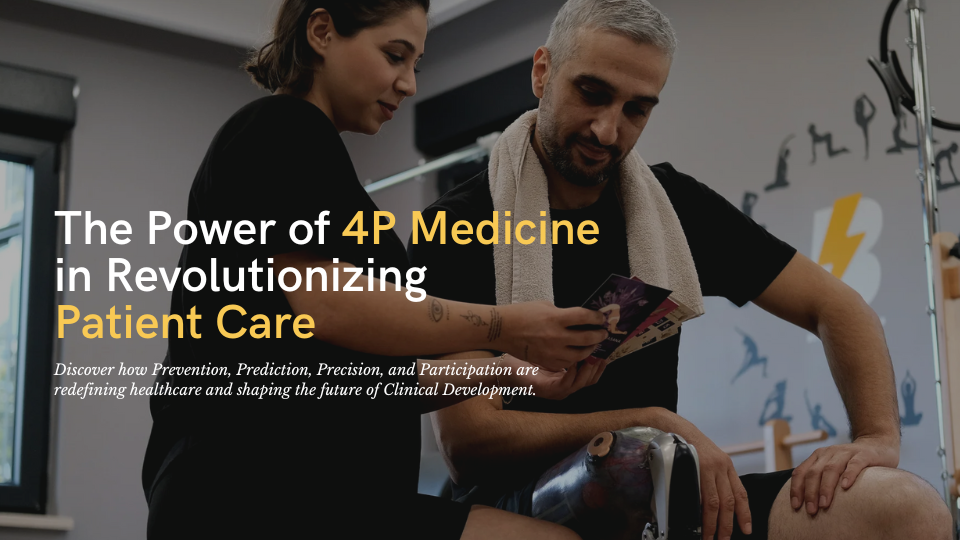
The Power of 4P Medicine in Revolutionizing Patient Care
In the rapidly evolving healthcare landscape, the concept of 4P Medicine—Prevention, Prediction, Precision, and Participation—marks a transformative shift towards personalized healthcare. This approach, refined over the last 15 years, aims to revolutionize how we understand, prevent, and treat diseases by focusing on each patient's unique needs. The recent whitepaper by Worldwide Clinical Trials highlights the profound impact of 4P Medicine on clinical development and patient care.
Understanding 4P Medicine
The essence of 4P Medicine lies in its comprehensive approach to patient care. It integrates prevention, prediction, precision, and participation to create a holistic healthcare model:
Prevention: By identifying risk factors and implementing early interventions, healthcare providers can prevent diseases before they manifest. This proactive approach aims to reduce disease burden and improve long-term health outcomes.
Prediction: Advances in systems biology and genetics enable prediction of disease susceptibility and treatment responses. This predictive capability helps tailor healthcare to individual needs, ensuring patients receive the most effective treatments.
Precision: Precision medicine develops personalized treatment strategies based on a patient’s genetic makeup, lifestyle, and environmental factors. This approach aims to maximize therapeutic efficacy while minimizing adverse effects.
Participation: Encouraging active patient involvement in their healthcare decisions is crucial. Patients are not just recipients of care but active participants, sharing information and collaborating with healthcare providers to make informed choices about their treatment options.
The Impact on Clinical Development
The whitepaper emphasizes that adopting 4P Medicine has significant implications for clinical trials and drug development. It enables the design of innovative trial methodologies that can accommodate the complexity of personalized treatments. For instance, integrating patient-reported outcomes (PROs) into clinical research provides valuable insights into the patient experience and helps assess the real-world effectiveness of treatments.
Researchers can identify patient subgroups most likely to benefit from specific therapies by leveraging big data and advanced technologies like genomics and proteomics. This stratified approach enhances the precision of clinical trials and accelerates the development of new treatments tailored to individual patient profiles.
Challenges and Opportunities
Implementing 4P Medicine in clinical trials presents challenges, including the need for robust statistical frameworks and the ability to handle diverse data sources. However, these challenges are outweighed by the potential benefits. Personalized Medicine can lead to more efficient drug development processes, improved patient outcomes, and reduced healthcare costs.
The whitepaper also highlights the role of patient participation in clinical research. Factors such as the physician-patient relationship, cultural relevance, and clear communication are critical in encouraging patients to participate in clinical trials. Addressing these factors can enhance patient engagement and improve the quality of clinical research.
A paradigm shift in healthcare
The transition to 4P Medicine represents a paradigm shift in healthcare, promising more personalized, predictive, and participatory patient care. It underscores the importance of integrating diverse biological data and patient perspectives into clinical research to develop tailored treatment strategies.
To delve deeper into the transformative potential of 4P Medicine and its impact on clinical development, we invite you to read the full whitepaper by Worldwide Clinical Trials. This comprehensive document provides valuable insights into the future of healthcare and the steps needed to make personalized Medicine a reality. Read the full whitepaper here.
For further details and to explore how 4P Medicine is reshaping the future of healthcare, be sure to download and read the complete whitepaper.


 EFPIA
EFPIA Yves Callewaert
Yves Callewaert